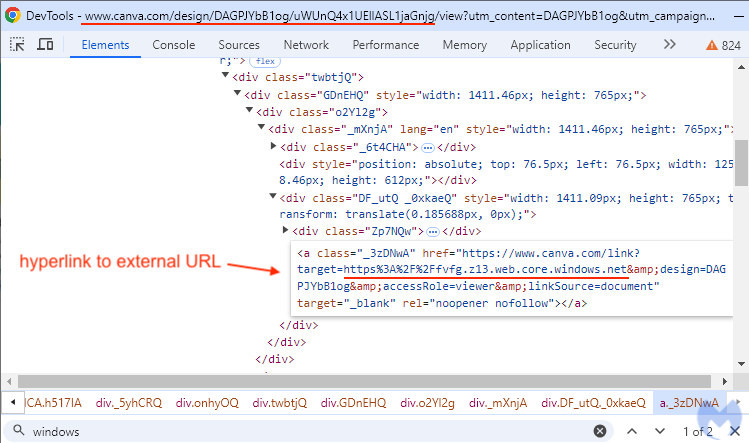In a earlier weblog submit, we confirmed how fraudsters had been leveraging options from the very firm (Microsoft) they had been impersonating. We proceed this collection with one other intelligent trick abusing Canva, a preferred on-line software for graphic design.
This time, the scammers registered an account on Canva to create a brand new design that, is in actual fact, a duplicate of the Canva residence web page. As victims come from a malicious advert, they land on this deceiving web page that lures them into interacting with it. The consequence: as quickly as you click on on the picture, your browser is hijacked with a pretend Microsoft alert.
On this weblog, we share the small print of yet one more abuse of the net expertise. We have now reported this malicious marketing campaign to each Google and Canva.
Convincing search advertisements
We recognized two totally different advertiser accounts concerned in creating fraudulent advertisements for the design platform Canva. The corresponding advertisements from each advertisers had been displayed on the very prime of the Google search web page outcomes, as seen within the picture beneath.
There may be little or no that tells you that these advertisements are pretend, and since most individuals belief what they see, they may possible be inclined to click on on them.

Canva residence web page?
Scammers created a free account on Canva and made a design that appears identical to… Canva’s residence web page. Of all of the doable artwork they may have created, they selected to take a screenshot of Canva’s web site and use it as their creation.
That is their “trick”, they need customers to suppose they’ve landed on the actual web site and anticipate them to click on on the ‘Begin designing’ button:

Malicious URL opens up pretend Microsoft alert
If we have a look at the supply code behind that design, we see one thing moderately attention-grabbing: a hyperlink to an exterior web site. Because of this when you click on on the picture, a brand new tab (goal=”_blank”) will open on the given URL.

This URL hijacks your browser and claims “Home windows locked attributable to uncommon exercise”:

Risk actors from totally different walks of life are leveraging a robust combo: branded Google advertisements and decoy pages. This enables them to lure in a lot of potential victims proper from search engine to scams or malware.
The underside line is you merely can’t belief what you see, as every thing is made to look respectable in a method or one other. To regain management of their net shopping expertise, customers should be extra proactive and use any of the instruments at their disposal.
Malwarebytes continues to hunt for malvertising schemes and diligently experiences them to the platforms which are being abused. For added safety, we suggest our free Browser Guard extension.